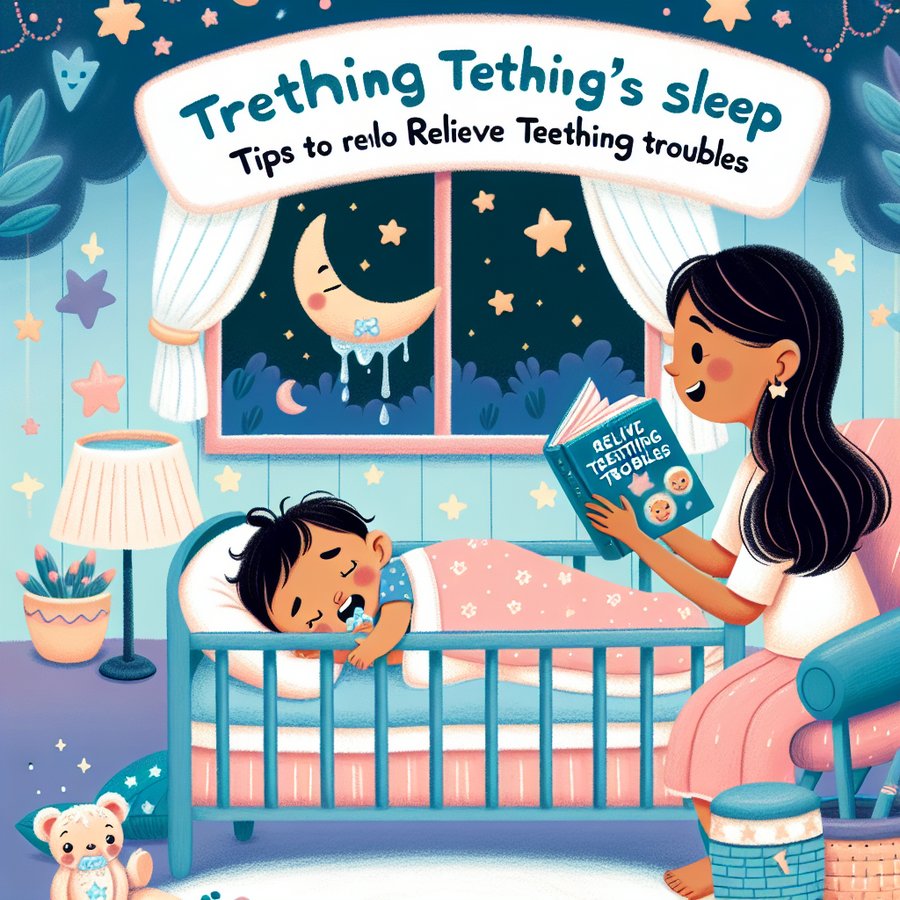The journey of infancy is filled with many milestones, including the challenging period of teething. Understanding the impact of teething on sleep and how to alleviate it is crucial for parents seeking to provide comfort and restful nights for their little ones. This guide offers insights and strategies to help your baby navigate teething with minimal disruption to their sleep.
The Impact of Teething on Sleep and How to Alleviate It
Teething can significantly affect a baby’s sleep patterns, causing discomfort and restlessness that lead to frequent wake-ups and disrupted sleep. The process of new teeth emerging through the gums can be painful and uncomfortable, making it difficult for babies to settle down and stay asleep. Recognizing the signs of teething, such as drooling, swollen gums, and a noticeable need to chew on objects, can help parents identify the root cause of their baby’s sleep troubles.
To alleviate the discomfort associated with teething and promote better sleep, several strategies can be employed. Offering a cold teething ring, gently massaging the gums with a clean finger, and ensuring the baby has ample opportunities to self-soothe throughout the day can make a significant difference. Additionally, maintaining a soothing bedtime routine and creating a comfortable sleep environment are key components in helping your baby find relief and rest during teething periods. For more detailed strategies, consider reading about teething and its impact on baby sleep and how to soothe it.
Creating a Comforting Bedtime Routine
A consistent bedtime routine is essential for signaling to your baby that it’s time to wind down and prepare for sleep. Even during the teething phase, sticking to familiar nighttime activities can provide comfort and a sense of security. This routine might include a warm bath, gentle massage, soft lullabies, and dim lighting. Establishing a predictable sequence of events can help mitigate the impact of teething on sleep, making it easier for your baby to drift off despite the discomfort.
Incorporating techniques specifically aimed at easing teething pain into your bedtime routine can also be beneficial. For example, using a clean, damp cloth to gently rub your baby’s gums or offering a cool, wet washcloth for them to chew on before bed can provide relief. Remember, every baby is unique, so it may take some experimentation to find the most effective methods for your child. For additional tips on establishing a soothing bedtime routine, check out this guide on establishing a bedtime routine for newborns.
Optimizing the Sleep Environment During Teething
Creating a sleep-friendly environment is another key factor in helping your teething baby get the rest they need. This includes maintaining a cool, comfortable room temperature, using soft and breathable bedding, and minimizing noise and light distractions. A serene sleep environment can significantly reduce the impact of teething on sleep, encouraging deeper and more restorative sleep.
Consider the use of white noise machines or soft lullabies to mask disruptive sounds and soothe your baby to sleep. Additionally, ensuring the crib or sleeping area is safe and free from potential hazards is paramount. For more information on optimizing your baby’s sleep environment, explore ideas for designing a sleep-friendly nursery on a budget.
Teething is a natural developmental phase that all babies go through, and while it can pose challenges to sleep, there are effective ways to manage and alleviate discomfort. By understanding the impact of teething on sleep and how to alleviate it, parents can better support their babies through this transition, ensuring both baby and parent can enjoy more restful nights. For further reading on managing sleep challenges in babies, consider exploring strategies for adjusting baby’s sleep schedule after travel across time zones and the role of a pacifier in promoting sleep.













